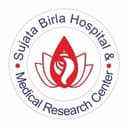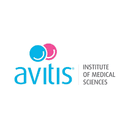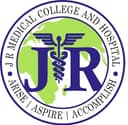Bachelor of Science in Medical Radiation Technology (MRT)
OR
Prepared by Docthub Courses Team ∣
Last updated on 02 Aug 2024
Overview
The Bachelor of Science in medical radiation technology details covers subjects such as radiography, radiotherapy, nuclear medicine, computed tomography, magnetic resonance imaging, and radiation safety.
Students learn about the principles of radiation physics, anatomy, diagnostic radiology, Radiologic technology, patient care, and imaging techniques.
The Bachelor of Science in Medical Radiation Technology in India is an undergraduate degree program that focuses on the use of radiation in medical imaging and therapy.
This course provides students with the necessary knowledge and skills to operate various medical imaging equipment and perform radiation therapy procedures.

Table of Content
Highlights
| Details | Bachelor of Science in Medical Radiation Technology (B.sc in MRT) |
| Level | Bachelor’s degree |
| Duration | 3 Years |
| Exam Type | Semester-wise |
| Course Fees | INR 10,000-10 Lakhs |
| Min. Qualification Requirement | 10+2 in the science stream with physics, chemistry, and biology. |
| Average Salary | INR 3-8 Lakhs |
| Selection Process | Entrance Exam/Merit-based |
| Min. Aggregate Score | 50% or more in 10+2 in science stream |
Eligibility
To be eligible for this course, candidates must have completed their 10+2 education in the science stream with Physics, Chemistry, and Biology as main subjects. Some colleges may also have specific entrance exams or minimum percentage requirements.
Duration
The duration of the Bachelor of science in medical radiation technology in India is typically three years, divided into six semesters.
Fees
The fees for the course may vary depending on the college or university. However, average fees range between INR 10,000 to 10 Lakhs.
Who Should Do This Course?
This course is suitable for individuals who have an interest in healthcare, technology, and medical imaging.
It is ideal for those who enjoy working with advanced equipment and want to contribute to patient care.
Why Study This Course?
Studying B.sc in MRT offers several advantages:
- It provides a specialized skill set in medical imaging and radiation therapy.
- There is a growing demand for professionals in this field, offering good job prospects.
- It allows individuals to work in a healthcare setting and contribute to patient diagnosis and treatment.
- The field offers opportunities for further specialization and career advancement.
Admission Process
The admission process typically involves filling out an application form, submitting required documents (educational certificates, ID proof, etc.), and appearing for entrance exams or interviews (if applicable). Each institution may have its own admission criteria and process.
Entrance Exam
Some colleges or universities may conduct entrance exams for admission to the B.sc in MRT course. It is recommended to check the specific requirements of the institution you are interested in.
Syllabus
The syllabus for B.sc in MRT may vary slightly across institutions. However, it generally includes subjects such as:
- Anatomy and Physiology
- Radiographic Techniques
- Radiation Physics
- Radiologic Technology
- Diagnostic Radiology
- Medical Imaging Modalities
- Radiation Safety and Protection
- Patient Care and Management
- Radiotherapy Techniques
- Nuclear Medicine Imaging
Top Private Colleges
Some top private Bachelor of science in medical radiation technology colleges are:
- Manipal College of Health Professions, Manipal
- Amity University, Noida
- SRM Institute of Science and Technology, Chennai
- Kasturba Medical College, Mangalore
Top Govt Colleges
Some top government Bachelor of science in medical radiation technology colleges are:
- All India Institute of Medical Sciences (AIIMS), Delhi
- Post Graduate Institute of Medical Education and Research (PGIMER), Chandigarh
- Government Medical College and Hospital (GMCH), Chandigarh
- King George's Medical University (KGMU), Lucknow
Scope
After completing a B.sc in MRT, graduates can work as:
- Radiographers
- Radiation Therapists
- Nuclear Medicine Technologists
- Medical Imaging Technologists
- Research Assistants
They can find employment opportunities in hospitals, diagnostic centers, cancer treatment centers, research institutions, and government healthcare organizations.
Further Study Options
After completing a B.sc in MRT, students can pursue higher education options such as:
- Master's degree in medical Radiation Technology or related fields
- Postgraduate diploma courses in specialized areas like MRI or CT scan technology
Career Opportunities After This Course
For Graduates after finishing a Bachelor of science in medical radiation technology jobs including working as:
- Radiographer
- Radiation Therapist
- Nuclear Medicine Technologist
- MRI Technologist
- CT Scan Technologist
- Research Assistant
Salary
The Bachelor of science in medical radiation technology salary can vary depending on factors such as experience, skills, and location.
On average, entry-level professionals can expect a salary range of ₹3 lakh to ₹8 lakh per annum. With experience and specialization, the salary can increase significantly.
Explore colleges for this course
Quick Go Links

Explore this course by location..
by States
by Cities
Related Job Roles
Related Job Vacancies
View All 82 Jobs

FAQS
What is a BSc MRT?
A BSc MRT is an undergraduate degree program that focuses on the use of medical imaging technology for diagnosing and treating medical conditions.
Medical Radiologic Technologists (MRTs) are healthcare professionals responsible for performing various imaging procedures, such as X-rays, CT scans, MRIs, and mammography, to aid in the diagnosis and treatment of patients.
What are the benefits of getting a BSc MRT?
Benefits of getting a BSc MRT include eligibility for high-paying careers in radiography and imaging, opportunities for specialization, and contributing to healthcare by producing diagnostic images.
What are the prerequisites for admission to a BSc MRT program?
Prerequisites for admission to a Bachelor of science in medical radiation technology in India program typically include a high school diploma or equivalent, completion of relevant science courses, and meeting specific GPA requirements.
What courses do students take in a BSc MRT program?
Courses in a BSc MRT program cover anatomy, radiographic techniques, Radiologic technology, diagnostic radiology, patient care, and medical imaging equipment operation, among other related subjects.
What are some of the jobs that BSc MRT graduates can qualify for?
BSc MRT graduates can qualify for jobs such as Radiologic Technologist, MRI Technologist, CT Technologist, or Radiation Therapist, working in hospitals, clinics, and diagnostic imaging centers.
Related Course titles

Qualifications
12th Science PCB
Related Specialty
Radiation Oncology
Radiology Technology






